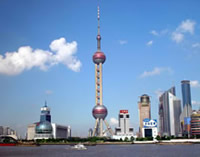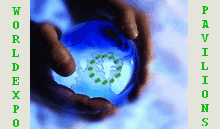|
|


ADVERTISEMENT
Buy Your own advertising
spaces!
.
Download Adobe Acrobat Reader to open [PDF] files.
Recent Visitors
A World Expo flop by the U.S.
2010. 16 July
Our pavilion at the 2010 World Expo in Shanghai is a huge disappointment, failing to showcase the best of the United States.
by Fred A. Bernstein
(articles.latimes.com)
Seeing a statue of Rachel Carson, the crusading American environmentalist, at the World Expo in Shanghai moved me almost to tears. After all, Carson is a symbol of independent thought and action, both vital U.S. exports.
Too bad the statue wasn't at the U.S. pavilion. But that building, sponsored in part by Carson's nemesis, Dow Chemical, was never going to be a celebration of the power of individuals. Indeed, the pavilion, with its bland tribute to "community," says little about what makes America, and Americans, special.
If you think the U.S. message in Shanghai this summer doesn't matter, you're wrong. More than 70 million people, most of them Chinese, are expected to attend the Expo (an event that, in size and cost, makes the Beijing Olympics look like a Little League tournament). How the countries of the world present themselves will influence how China views them — with political, cultural and economic consequences far into the future.
Given the high stakes, nearly 200 nations turned out for the Expo. The hits include Britain's pavilion, which celebrates biodiversity with a gorgeous building housing thousands of seeds, and Switzerland's, with its exhilarating chairlift ride through an artificial Alp. Some of the national pavilions are educational; others are just plain fun.
But the U.S. pavilion, which is neither, might as well have been across the Huangpu River in the Expo's corporate section.
The cause is a 1990s law that restricts federal funding for international expositions. This silly bit of isolationism meant the pavilion had to be built by a nonprofit group and given to the U.S. as a gift. State governments were asked to contribute to the nonprofit, but only three — Texas, Tennessee and Hawaii — came through. As a result, there's a map in the lobby that leaves 47 states unidentified — an appalling symbol of disunity. (Chicago and San Antonio also contributed.)
The other donors were corporations. Secretary of State Hillary Rodham Clinton, who stepped up fundraising after she took office, and the companies that wrote checks should be commended — without them, the U.S. would have been AWOL. (That may be unthinkable, except that it has already occurred: In 2000, the U.S. was a no-show at the World Expo in Hanover, Germany. And in 2005, when the Expo was held near Nagoya, Japan, Toyota's hometown, only the automaker's largess made it possible for the U.S. to participate.)
Source: articles.latimes.com


